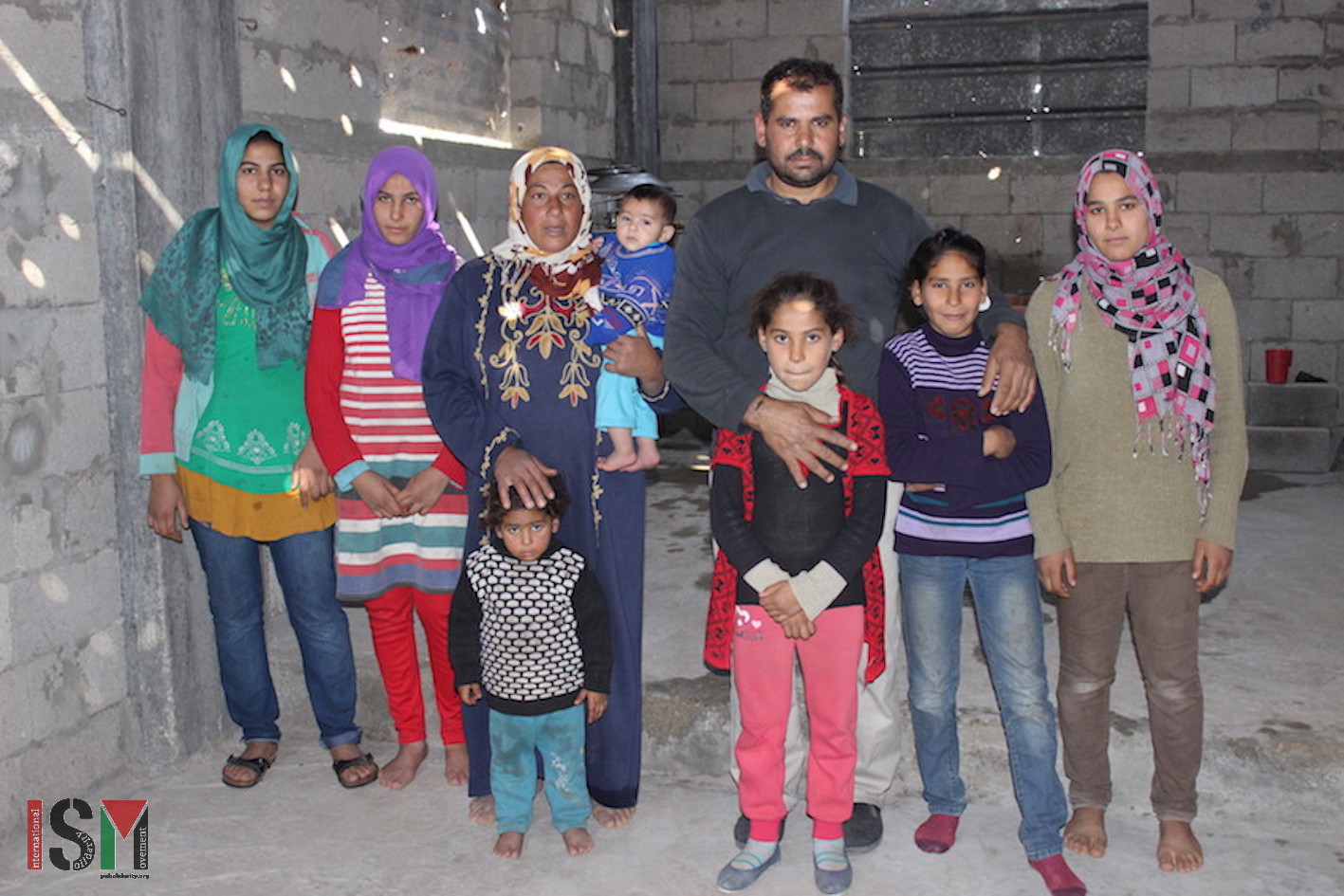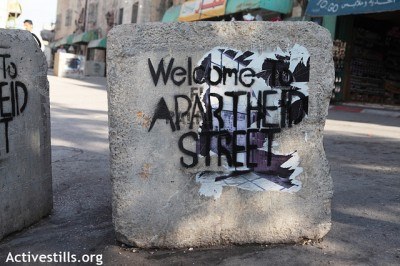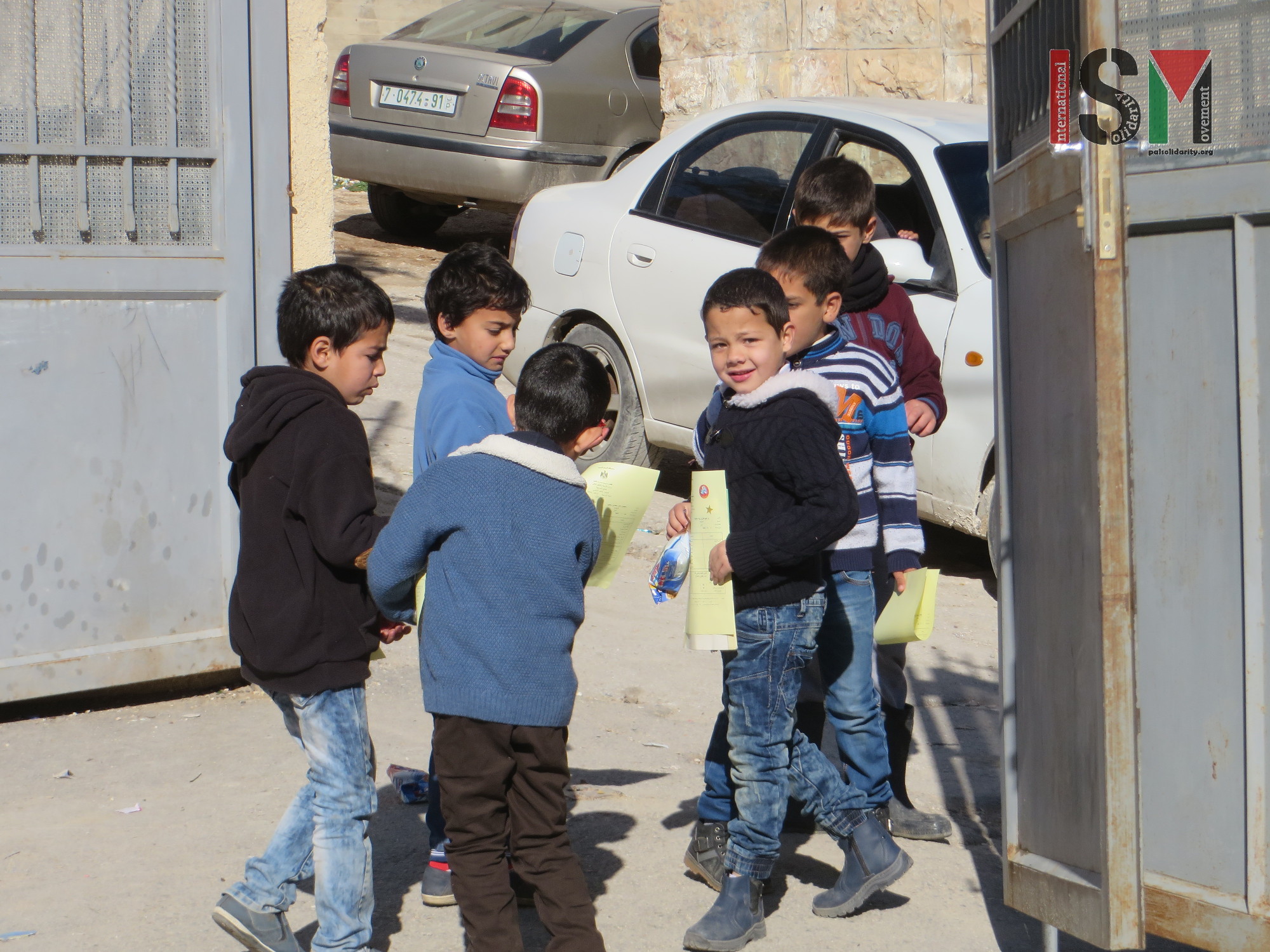Author: ISM Media
-
Gaza families still enduring the aftermath of 2014 Israeli assault
13th January 2016 | International Solidarity Movement, Gaza Team | Beit Hanoun, Gaza strip, occupied Palestine A year and a half after the last massive assault on the Gaza Strip the promised reconstruction has not yet appeared. However, what has not ceased to appear since then are new sequels and side effects due to the Israeli forces’…
-
ACT NOW ! Put an end to the ‘Closed Military Zone’ in Tel Rumeida and Shuhada Street, Hebron
11th January 2016 | Action Alert last updated 21st January 2016 *** Arabic version below *** The undersigned organisations are calling on the international community to take immediate action regarding the continuous closure of the Tel Rumeida neighborhood and the part of Shuhada Street that has remained accessible to Palestinian residents since the Ibrahimi…
-
Ziad Jaber school marks start of winter holidays after another semester under occupation
10th January 2016 | International Solidarity Movement, al-Khalil Team | al-Khalil, occupied Palestine On Wednesday, 6th January 2016, schools in occupied al-Khalil (Hebron) marked the start of the winter holiday by handing out certificates to the students and giving awards to the best students. At Ziad Jaber elementary boys school, school started at 9 o’clock with a ceremony…



